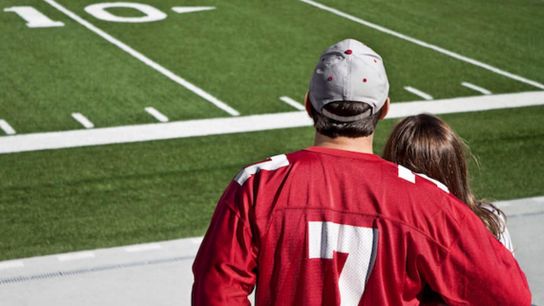There's nothing new about the over-involved parent. The term "helicopter parent" originally appeared in print in 1969 and was officially coined in 1990. Before Galu Tagovailoa--who moved from Hawaii to Tuscaloosa so he could scowl (or worse) at son Tua after every incompletion--there was Marv Marinovich, whose tyrannical rule over his son Todd drove the kid to the NFL and, later, to drug addiction.
But now, a generation later, parents have evolved. No longer satisfied to hover over everything their child does, parents have to get down on ground level and bulldoze every single thing--good or bad--standing in front of their child.
"It means you are doing something to smooth the way for the child. It’s not just that you’re hypervigilant—it’s that you are actually getting rid of those bumps, which robs kids of the necessary experience of learning and failing," psychologist Madeline Levine told Sports Illustrated.
SI did a deep dive into the topic, and eye-popping anecdotes were not hard to find.
There's the NHL player whose parents hired a private coach--during the season--behind the back of his team and his agent. There's the NFL agent who nearly fired his client because Mom and Dad hired their own coach to run his Pro Day. And then there's the NBA team where parents sitting in on practices and team meetings became a common occurrence.
Those anecdotes were easy to come by because seemingly every agent across every sport has their own story(s) to tell.
“They start training their kid like an Olympian from age four, and it has really become a full-time job,” one agent said. “When the planets align and you have the crazy parent and you also have the talented child, then you have a professional athlete. That’s it, I’m telling you, [with] like 90% of the players I work with.”
Easy as it would be to blame the parents--and, to be sure, much of the blame certainly does lie there--it's also hard to fault people who are doing what they believe is best for their child. In truth, many parents feel like they have no other choice but to go above and beyond for their kid because the system leaves them no other choice. Youth sports have become professionalized, so parents have adapted. Gone are the days when, at least at the highest levels, the only thing required to play competitive baseball was a $50 entry fee and a new glove.
And as the stage gets bigger and the stakes get higher, now comes a new set of figures whose income is derived from players' performance--be they college coaches, specialized trainers or professional agents.
Rather than resist the snowplow parent, a number of college programs have embraced them by harnessing their focus and redirecting into a channel that helps everyone, like how Ohio State has set up its own organization for football parents, with a president, a secretary and a website.
Still, the snowplow parent isn't just a problem for youth sports coaches anymore. They're growing in lockstep with their children, and in the end it's the kids who suffer.
“When a child is overhelped like this and led down the path of their life, obstacles cleared out of their way, it harms them psychologically,” author Julie Lythcott-Haims told SI. “When you have too much handled for you, the person lacks agency for their life.”
